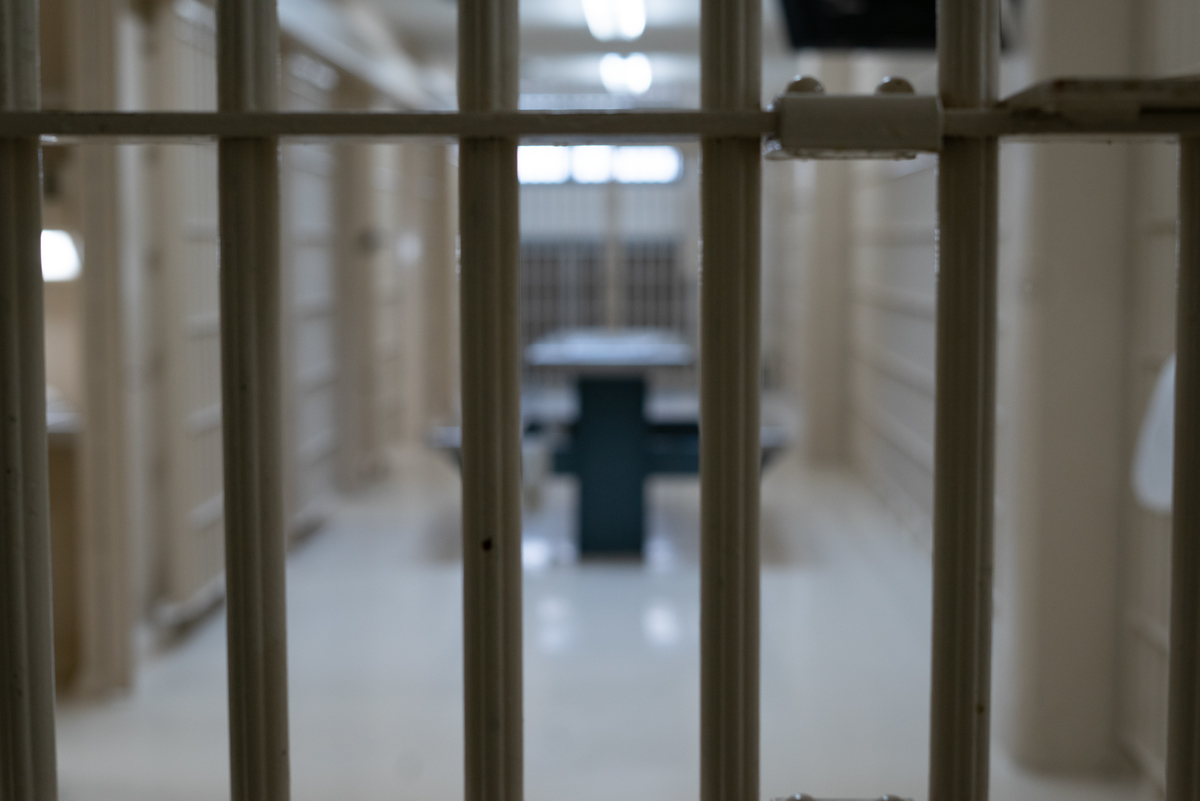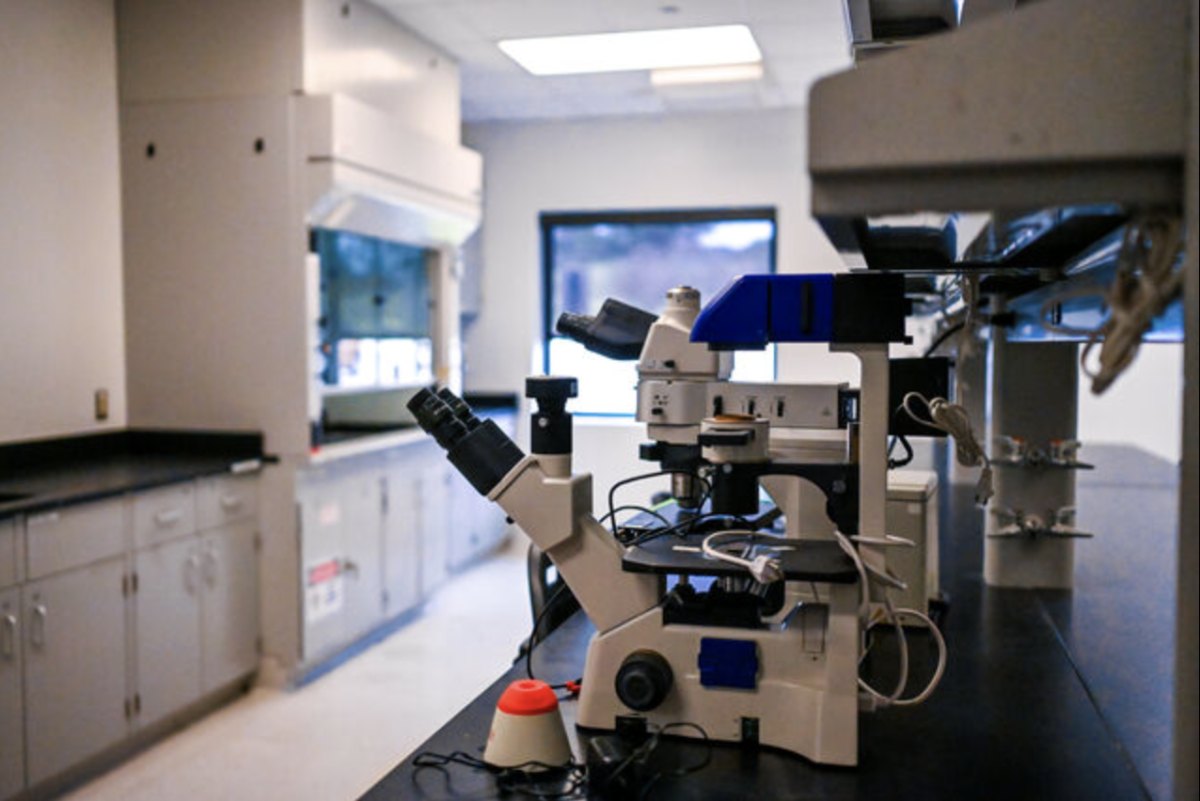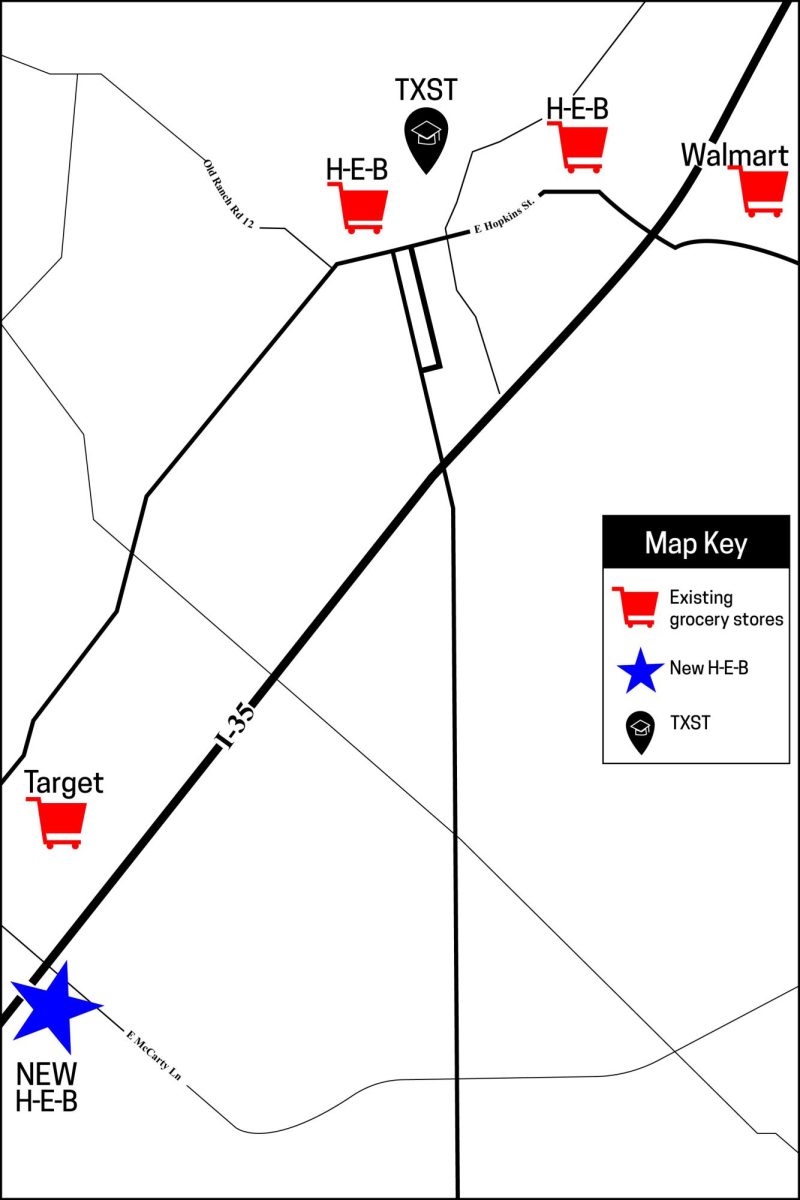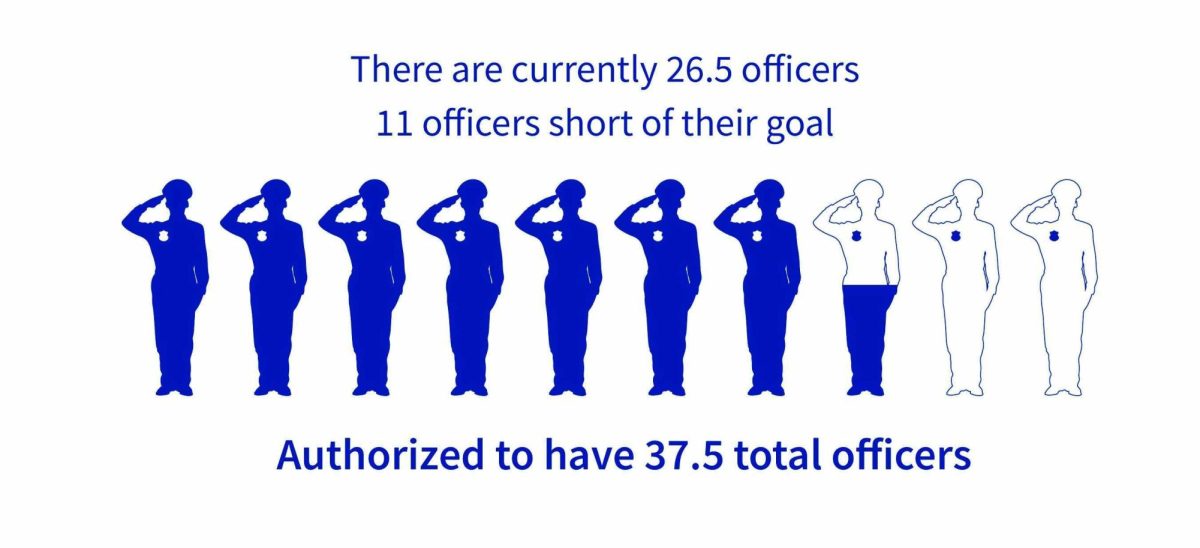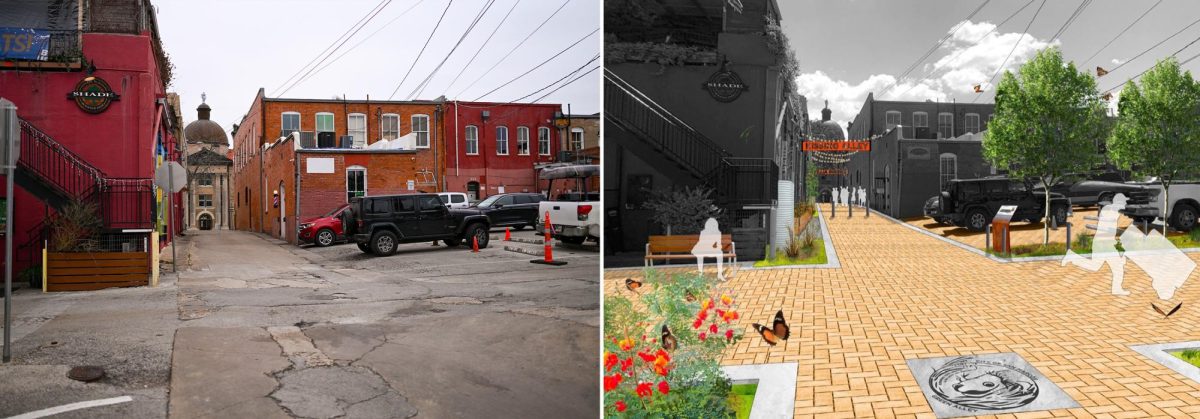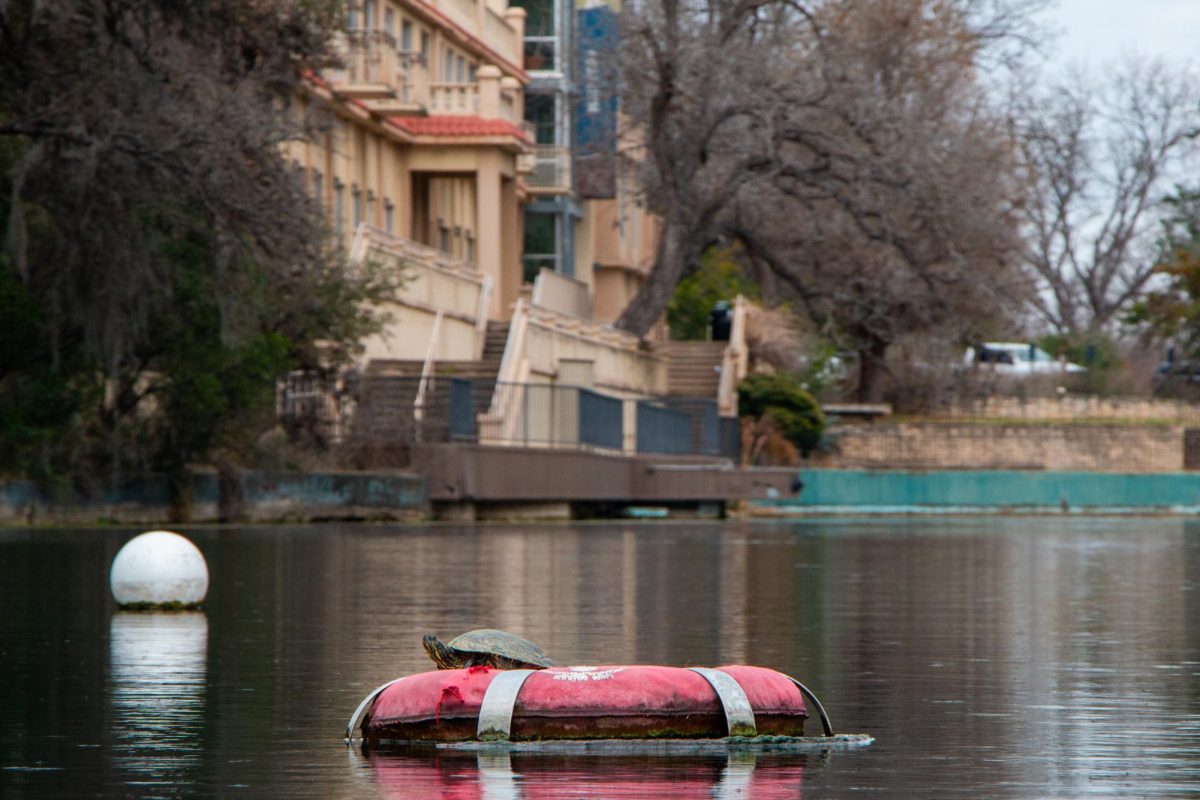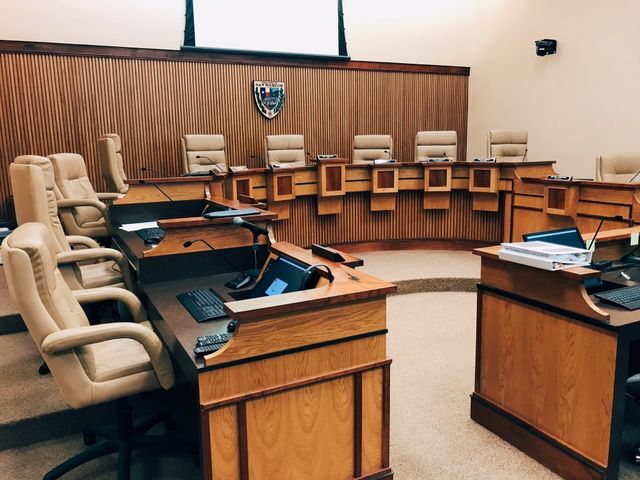The jail’s inmate population has increased 82 percent since 2014, way out of proportion with the 16 percent growth of the county’s population, according to the Hays County sheriff’s office. The dramatic and quick rise in inmates has led the jail to reach capacity, meaning inmates are being outsourced to other county jails so much that the direct inmate cost has increased 310 percent since 2014.
The outsourcing is costing taxpayers $10,000-15,000 a day, with transportation costs varying depending on the counties’ contract, according to Hays County judge chief of staff Alexander Villalobos. The transportation cost includes food, employees, vehicles and pharmaceutical care, Villalobos said.
Public data about the costs and number of inmates outsourced has only recently been made available at weekly Hays County Commissioners Court meetings after an initiative led by Hays County Judge Ruben Becerra Sr.
Hays County Jail had a peak of 478 inmates between Feb. 25 and March 3. The jail has 362 beds, but only 311 beds can be used at any time because the jail must be 10 percent under capacity for safety reasons, according to Texas Commission on Jail Standards.Villalobos said the 10 percent rule is looked at from a financial perspective.
“We look at the cents and dollars, which allows us to look at the different initiatives to save and better use tax dollars,” Villalobos said.
San Marcos-based defense attorney Brian Baker argues outsourcing inmates may seem cost-effective, but it burdens an inmate’s ability to find legal counsel. Several Hays County inmates are outsourced over 100 miles away in McLennan County or 180 miles away in Limestone County. Driving from San Marcos to those counties can take over two hours.
Baker said if an inmate is indigent and needs a court-appointed lawyer, it is difficult to find someone willing to spend hours traveling to get information about a case.
“What lawyer wants to take an entire day to drive from San Marcos up I-35 traffic to Limestone County to meet one inmate? To me, at some point, it can be unconstitutional,” Baker said. “They are denied effective meeting with counsel.”
Jail operations Capt. Julissa Villalpando said she would prefer to keep inmates closer, but nearby counties have limited staff or limited space to take in more inmates.
Villalpando is hopeful new court members and an increase in pretrial services will alleviate the overcrowding. Currently, one person handles pretrial services.
“It is out of our control,” Villalpando said. “There are other factors in the system, but my job in corrections is to make sure inmates are safe and secure.”
One attempt to keep the inmate population and ultimately outsourcing low is by offering recognizance bonds, no-cost bail for misdemeanors. Recognizance bonds allow someone to sign official documents stating they will show in court and in turn be released on bond without having to pay. Monitoring bracelets or drug tests are occasionally part of the agreement. The county has a 10-to-1 ratio of felony-to-misdemeanor inmates, meaning most inmates are felony defendants. County court judges give recognizance bonds to misdemeanor only inmates.
The jail will be expanded after receiving a $78 million bond in 2017. Villalpando said the first phase is expected to provide 192 new inmate beds for a total of 472 beds by 2020.
However, Hays county is likely to continue to outsource inmates based on last year’s average inmate population and the continued growth of inmates.
The expanded jail will need 91 new employees, but the county is worried about training and hiring that many people. New employees must go through three months of state standardized training with an undesirable job as a corrections officer.
Categories:
Inmate Impasse
March 12, 2019
0
Donate to The University Star
Your donation will support the student journalists of Texas State University. Your contribution will allow us to purchase equipment and cover our annual website hosting costs.
More to Discover


